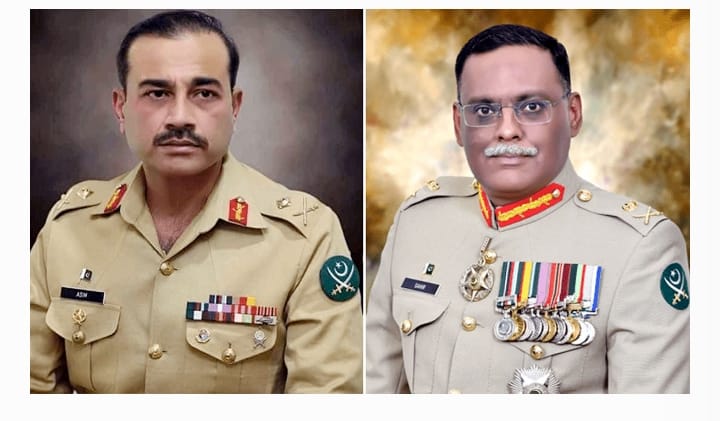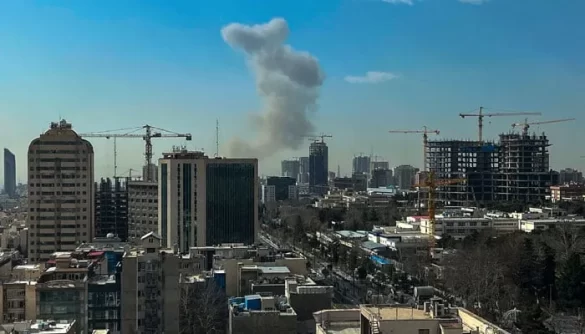Military Leadership Honors Kashmiris’ Struggle on ‘Youm-e-Istehsal’
RAWALPINDI – On the occasion of ‘Youm-e-Istehsal’ (Day of Exploitation), Pakistan’s top military leadership expressed strong solidarity with the people of Indian-administered Kashmir, reaffirming unwavering support for their right to self-determination in line with United Nations resolutions.
In a statement issued by the Inter-Services Public Relations (ISPR), the country’s military media wing, Chief of Army Staff (COAS) General Syed Asim Munir, along with the Chairman Joint Chiefs of Staff Committee, the Naval Chief, and the Air Chief, paid tribute to the resilience and continued struggle of the Kashmiri people under Indian administration.
“Unjust Occupation Must End,” Says ISPR
According to ISPR, the military leadership emphasized that Pakistan’s armed forces stand firmly with the Kashmiri people, recognizing their ongoing struggle as just and legitimate under international law and UN Security Council resolutions.
The statement condemned India’s abrogation of Articles 370 and 35A of the Indian Constitution on August 5, 2019, which revoked the semi-autonomous status of Jammu and Kashmir and brought the region under direct control of New Delhi. Pakistan observes this date annually as a reminder of what it describes as an unlawful occupation.
ISPR noted that these actions not only contravene international legal frameworks but also violate the UN Charter and multiple Security Council resolutions, which call for a plebiscite in the disputed region.
Regional Peace at Risk, Warns Pakistan’s Military
The military statement went on to highlight the threat posed to regional peace and stability by India’s policies in Kashmir. It drew attention to several key concerns:
-
The military lockdown imposed across Jammu and Kashmir
-
The arbitrary detention of political activists and civilians
-
Restrictions on freedom of expression and assembly
-
Demographic changes through land appropriation and new domicile laws
According to ISPR, such measures amount to a systematic campaign to alter the Muslim-majority identity of the region, and they pose a serious challenge not just to Kashmiris but to the broader ideals of human rights and democracy.
Continued Support on All Fronts
The ISPR reaffirmed that Pakistan’s armed forces will continue to extend moral, political, and diplomatic support to the people of Kashmir. Military leaders emphasized that they would continue to raise the issue at all international forums, ensuring that the plight of Kashmiris remains a topic of global concern.
“The Kashmir issue is not an internal matter of India,” the statement said, “but an unresolved international dispute that requires urgent attention and resolution based on the aspirations of the Kashmiri people.”
Background: What Happened on August 5, 2019?
On August 5, 2019, the Indian government, led by Prime Minister Narendra Modi, revoked Article 370 and Article 35A of the Indian Constitution, which had granted special status to Jammu and Kashmir. This move allowed people from other Indian states to buy property and settle in the region—sparking fears among Kashmiris of demographic dilution.
The revocation was accompanied by a military siege, communications blackout, and the detention of thousands of political leaders, activists, and civilians. According to human rights groups, these actions led to widespread human rights violations, drawing criticism from both domestic and international watchdogs.
Observing ‘Youm-e-Istehsal’ in Pakistan
Every year on August 5, Pakistan observes Youm-e-Istehsal to mark the anniversary of India’s constitutional changes in Kashmir. The day is meant to:
-
Express solidarity with Kashmiris
-
Condemn India’s unilateral actions
-
Call for international intervention
-
Highlight ongoing human rights violations
Events held across Pakistan typically include protest rallies, public seminars, and media campaigns to keep the Kashmir issue alive in global discourse.
Conclusion
As Pakistan’s military leadership speaks out on Youm-e-Istehsal 2025, the message is clear: Kashmir remains a core issue in Pakistan’s national narrative. The country’s armed forces have reiterated their steadfast support for the Kashmiri people and their demand for justice and self-determination.
While diplomatic and political channels remain strained, such statements reflect Pakistan’s ongoing commitment to bringing international attention to the Kashmir conflict—now in its sixth year since the abrogation of its special status.















